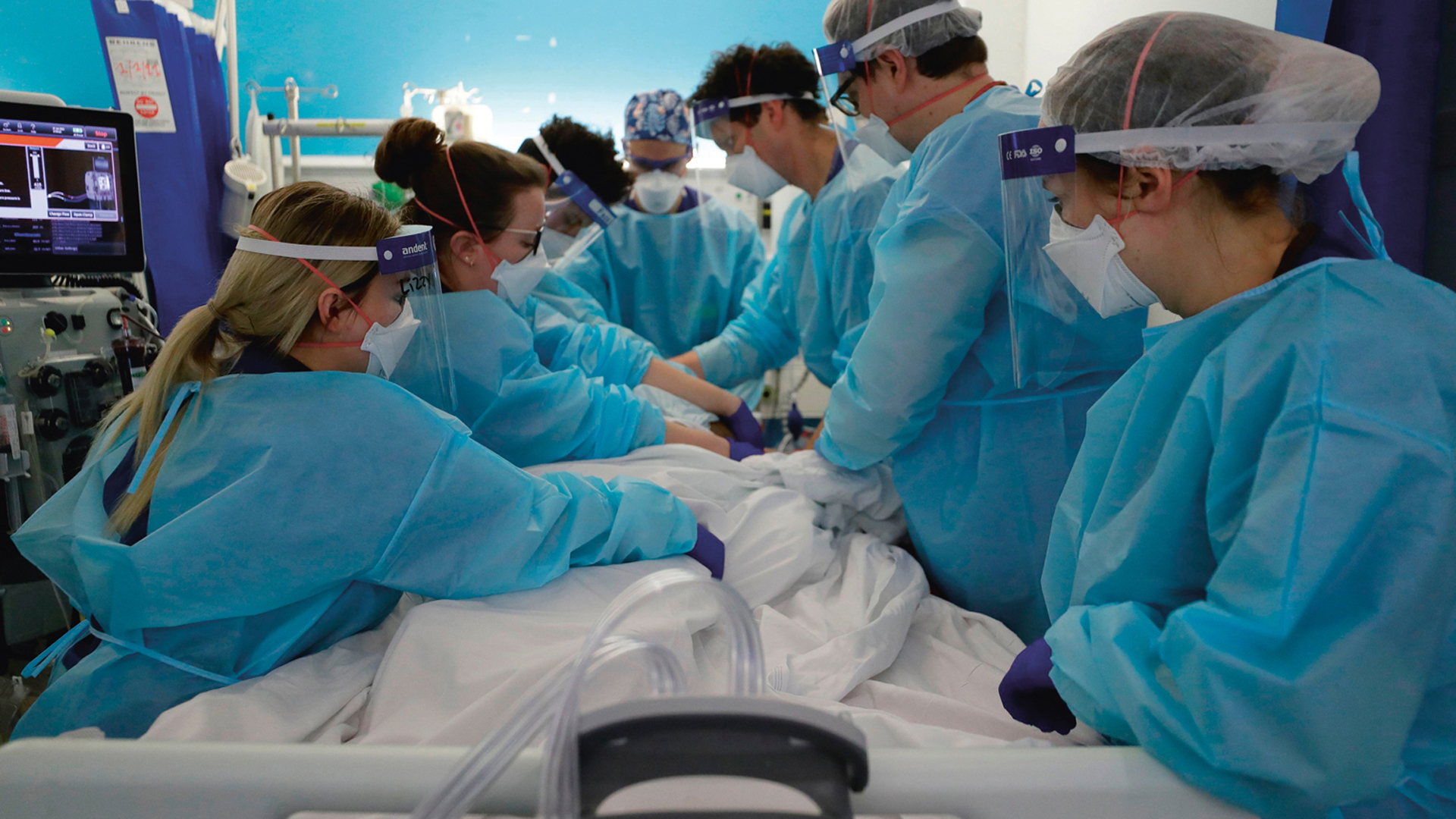Somewhere along the way though, it all started to come apart. How did we get here? With little steps I suppose. At the end of May, when our government stood firm behind a special advisor flagrantly breaking the lockdown rules, gaslighting a nation who thought we had been in this together with a double standard wrapped in nonsense about an eye test and a castle.
Then over the summer, when shock jockeys and YouTubers took to the air to denounce Covid as imaginary, that despite the overwhelming data and evidence, hospitals were empty and NHS workers were in on this national conspiracy. We watched as inexplicably the lockdown was lifted for Christmas, cases predictably exploded upwards.
By early September, that ‘sceptic’ movement had hardened into a physical presence, actively lobbying against the advice of experts like SAGE, who were publicly calling for an early lockdown. Despite the devastation of the spring, and all the talk of finally listening to our experts, we failed to heed the warnings or act decisively at the crucial moments.
“Over 850 healthcare workers have died in the UK due to Covid, one of the worst rates per capita in the world.”
Over the summer the workforce was exhausted after the gargantuan effort to reorganise and deliver care during the spring. Despite the consequent relief as that effort was behind us, there was trepidation over the possibility of a second wave and increasing dismay that some journalists and public figures started to rewrite history and turn against the depleted healthcare workforce.
Cases ballooned over October, running into a half-hearted lockdown again in November. With a new variant loose among us (as a product of uncontrolled virus and mutation) half measures were never going to be enough. We watched as inexplicably the lockdown was lifted for Christmas, cases predictably exploded upwards, and we skidded into a hard lockdown in January desperately too late to prevent a second devastating wave.
Advertising helps fund Big Issue’s mission to end poverty
Over 850 healthcare workers have died in the UK due to Covid, one of the worst rates per capita in the world. Hospitals are now at the highest peak they’ve ever been, but the workforce is already exhausted. We’ve just passed the grim milestone of 100,000 deaths in the UK, as we approach the anniversary of our first cases. A world leader, for all the wrong reasons.
We are also approaching another grim milestone, currently over 850 healthcare workers have died in the UK due to Covid, one of the worst rates per capita in the entire world. Another world-beating legacy. Staff are vulnerable, exhausted and morale is beyond rock bottom.
What’s different in 2021? Well, we have new tools to deal with Covid-19. Firstly, we know a lot more about the virus, we are managing more very unwell patients with different ventilation strategies and we have a few medicines that have been shown to help.
We also have the singular success of rapidly developed and rolled-out vaccines. But with the priority groups being the over-70s, and the average age in ICU being 60, we won’t see a significant impact to ICU admissions in the next few months. We are also dealing with new challenges, more transmissible and more deadly variants, so the road back to a Covid-free world is still one with miles to travel (and depends on more sensible decision-making than we have seen this past year).
If there is one lesson we desperately need to learn, a mistake we must acknowledge and pursue a solution to, it is to support our most valuable resource: our NHS people.
Advertising helps fund Big Issue’s mission to end poverty
During the first wave of this pandemic charity efforts like ours, the Healthcare Workers’ Foundation, saw a spectacular outflowing of support that allowed us to deliver much-needed PPE, tens of thousands of hot meals, counselling and childcare grants to struggling NHS workers.
As time goes on, support for things like our family fund, supporting the bereaved families of NHS workers, are more important than ever. While last year may have been the worst year for the NHS on record, with a ballooning backlog and a broken workforce, if we don’t fully support our healthcare workers then it is hard to imagine us making it back through not just Covid but its consequences to the world we knew.
Jeeves Wijesuriya is a junior doctor working at a London hospital and a member of the Healthcare Workers’ Foundation









